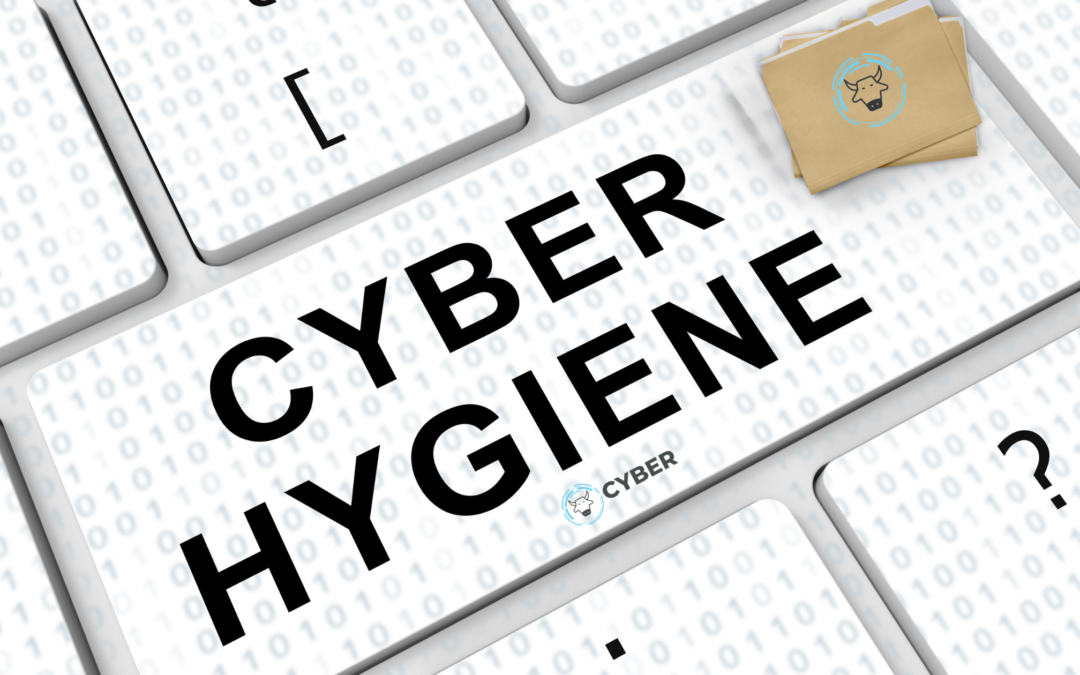The concept of cyber hygiene is as crucial as personal hygiene in maintaining health when so much of our lives and businesses are online. Cyber hygiene refers to the practices and steps that users of computers and other devices take to maintain system health and improve online security. For businesses and individuals, maintaining good cyber hygiene is essential to protect against data breaches, cyber attacks, and other online threats. Here’s why cyber hygiene is important and how you can implement it.
What is Cyber Hygiene?
Cyber hygiene encompasses regular and routine practices that ensure the security and health of your information systems. These practices help prevent cyber threats and maintain the integrity, confidentiality, and availability of data. Good cyber hygiene is proactive and involves a continuous process of checking, updating, and improving your cyber defences.
The Importance of Cyber Hygiene
Protects Sensitive Data
One of the primary reasons for maintaining good cyber hygiene is to protect sensitive data. This includes personal information, financial data, intellectual property, and other confidential information. By implementing strong cyber hygiene practices, you can significantly reduce the risk of data breaches and unauthorised access.
Prevents Cyber Attacks
Regular cyber hygiene practices help identify and mitigate potential vulnerabilities in your systems. This proactive approach can prevent cyber attacks such as phishing, ransomware, and malware infections. Ensuring your software is up-to-date, and using robust security measures, are key aspects of preventing cyber threats.
Enhances Business Reputation
Businesses that demonstrate strong cyber hygiene practices build trust with their customers, partners, and stakeholders. A commitment to protecting data and ensuring secure transactions enhances your business reputation and can be a competitive advantage. In contrast, a data breach or cyber attack can lead to loss of trust and damage to your brand.
Ensures Regulatory Compliance
Many industries are subject to regulations that require businesses to protect sensitive data. Good cyber hygiene helps ensure compliance with regulations such as the General Data Protection Regulation (GDPR) and other data protection laws. Non-compliance can result in hefty fines and legal consequences.
Reduces Financial Losses
The financial impact of a cyber attack can be significant, including costs related to data recovery, system repair, legal fees, and fines. Implementing strong cyber hygiene practices can prevent such incidents and the associated financial losses. It is a cost-effective approach to managing cyber risks.
How to Implement Good Cyber Hygiene
Use Strong Passwords and MFA
Ensure all accounts use strong, unique passwords. Multi-factor authentication (MFA) adds an extra layer of security, making it more difficult for cybercriminals to gain access.
Regular Software Updates
Keep all software, including operating systems and applications, up-to-date. Regular updates fix vulnerabilities that cybercriminals can exploit. Enable automatic updates to ensure you do not miss critical patches.
Data Backups
Regularly back up your data and store it in a secure location. Ensure backups are encrypted and test them periodically to ensure they can be restored quickly in case of a cyber incident.
Employee Training
Educate your employees about cyber hygiene best practices. Regular training sessions can help them recognise phishing attempts, use secure passwords, and follow safe online behaviour.
Use Antivirus and Anti-Malware Software
Install and maintain antivirus and anti-malware software on all devices. Regular scans can detect and remove malicious software, protecting your systems from harm.
Implement Firewalls
Firewalls act as a barrier between your internal network and external threats. Ensure firewalls are properly configured and monitored regularly to block unauthorised access.
Secure Wi-Fi Networks
Ensure your Wi-Fi networks are secure and encrypted. Use strong passwords and avoid using default settings provided by the router’s manufacturer. Consider setting up a guest network for visitors.
Monitor and Audit Systems
Regularly monitor your systems for unusual activity and conduct audits to ensure compliance with security policies. Promptly address any anomalies or vulnerabilities discovered.
TL;DR:
The importance of cyber hygiene cannot be overstated. It is essential for protecting sensitive data, preventing cyber attacks, and maintaining the trust of customers and stakeholders. By implementing good cyber hygiene practices, you can ensure the security and health of your information systems, comply with regulations, and reduce financial risks.
For more information on cyber hygiene and best practices, visit the National Cyber Security Centre (NCSC) and the Information Commissioner’s Office (ICO).
Stay proactive, stay informed, and maintain good cyber hygiene to protect your business and yourself in the digital age.

